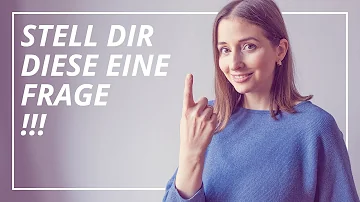Wie fühle ich mich?
What is the meaning of Ich heiße?
My name is
Translation of "ich heiße" into English
ich heiße. 9 / 999. My name is.

What is the meaning of Ich liebe?
The classic Ich liebe dich is German for “I love you” and isn't used as frequently as it is in the English language. It is reserved for very deep and intimate relationships. A common response to Ich liebe dich is Ich dich auch which means “you too” or Ich liebe dich auch “I love you too”.
Was Mich betrifft meaning?
as regards as far as (something) is concerned. As regards the meeting tomorrow, I hope as many people will attend as possible.
What is the meaning of Wie gehts dir?
To ask “how are you?” in German you can say wie geht's dir?, or in a more formal situation, wie geht es Ihnen?
What is Ich Du Sie?
In the previous lessons, you've probably noticed these pronouns: ich (I), du (you), er (he), sie (she), Sie (you), wir (us), ihr (you) and sie (they).
What is ich mich Mir?
That's why the 1st person pronouns are I and me (ich, mich/mir).
Do Germans say ich liebe dich?
Unlike other languages, the German expression “Ich liebe dich” is almost exclusively used in romantic relationships. Nevertheless, Germans like to express their love for their friends and family too. In most cases, they say “Ich hab' dich lieb,” which could be translated as “I have love for you.”
What does Guten Nacht?
Gute Nacht is the most common and widely used expression to say “good night” in German.
Was Treibst du so meaning?
What are you doing?]
[What are you doing?] Was treibst du (so) zur Zeit? [ugs.] What are you up to at the moment? [coll.]
Was für ein meaning?
What for one
The question word(s) "Was für (ein)" (lit. "What for one") is used to ask what of which kind of person/place/thing, etc something is, usually in a general sense. The direct translation can cause some confusion, as in English, we would say "What kind of".
Why do Germans say genau so much?
This is because 'Genau', which means 'exactly', is one of those interjections people say while having a conversation to signal they are listening and engaged.
What is Auf Gehts?
Auf geht's! Off we go! Let's roll! Still having difficulties with 'Auf geht's!'?
What does Ich liebe du?
“Ich Liebe Dich” – the Deepest Way to Say “I Love You” in German.
What is bita in German?
We say “Bitte” (Please).
The German word bitte means so much more than “please” or “you're welcome.” In some ways, it's a go-to word like “pardon.”
How does a German guy flirt?
Flirting In German: It's All In The Eyes
According to at least one Babbel insider living in Berlin, Germans have a tendency to stare and to hold intense eye contact. This doesn't mean all eye contact is sexy eye contact. It just means sexy eye contact could involve a little more “innuendo” than usual.
Do Germans say Guten Abend?
Just as in English, there are several ways to say hello in German. You can simply use the informal Hallo (hi) on its own. You can also use Guten Morgen (good morning), Guten Tag (good afternoon) or Guten Abend (good evening). You would only use Gute Nacht (good night) at bedtime.
What does Aye Aye mean in German?
ja naut. Aye-aye, sir! Zu Befehl! naut.
Why do the French say donc?
So what exactly does it mean? Dis donc has several translations into English. While it literally means 'say then' it would really be equivalent to 'wow', 'goodness', 'hey! ', 'well,' and 'listen' and is usually used to express surprise or admiration.
What du jour means *?
of the day
It comes from French, in which du jour means literally “of the day.” In English, it can mean either an item served in a restaurant on a particular day, as in example 1 above, or something that is happening or popular at the current time (this month, this year, etc.), as in examples 2 and 3.
Was für your daily German?
"was… für" is a colloquial German version for "what kind" and it's incredibly common.
Is Ein a German word?
Ein and Eine are the indefinite articles in German. It's the equivalent to “a” or “an” in English. In German, a noun can either be masculine, feminine, or neutral. Masculine and neutral nouns have the indefinite article ein.
What is the hardest German word to say?
1. Eichhörnchen (Squirrel) Also a difficult one in English, this is a classic when it comes to difficult German words to pronounce.
Why do you say bitte after Danke?
When someone says danke, the standard response is bitte. This normally means 'please', but within the context of responding to a 'thank you', it means 'you're welcome'.
What is Bitte sehr?
-Bitte sehr! (-Thank you.) –You're welcome!
Do German men say I love you?
GERMANS DON'T SAY I LOVE YOU. They have each other's love – sie haben sich lieb. It means less than I love you, which they really save for special occasions. The thing is, this is what you have to realize: the English words “I love you” literally mean less than the German words ich liebe dich.


